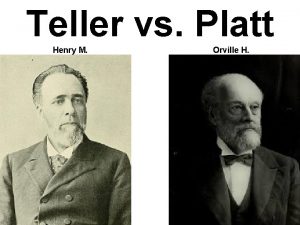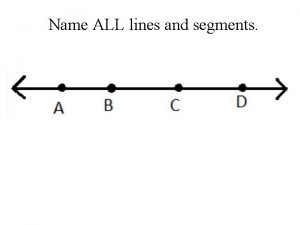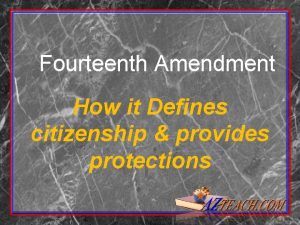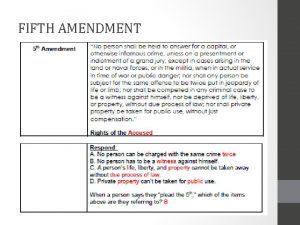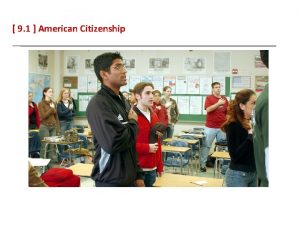AMERICAN CITIZENSHIP 14 th Amendment Defines citizenship All






- Slides: 6

AMERICAN CITIZENSHIP

14 th Amendment • Defines citizenship • “All persons born or naturalized in the United States and subject to the jurisdiction thereof, are citizens of the United States wherein they reside. ” • Citizenship was not defined in the Constitution until the 14 th Amendment was passed in 1868…

Citizenship by Birth Jus Soli • “law of the soil” or where one is born • Refers to people born in the defined United States which includes the 50 states, the District of Columbia, Puerto Rico, Guam, the Virgin Islands, and the Northern Mariana Islands • Also includes U. S. Embassies and American public vessels anywhere in the world Jus Sanguinis • “law of the blood” or to whom one is born • 1) Both parents are American citizens, and at least one has lived in the U. S. or a U. S. territory at some time • 2) One parent is an American citizen who has lived in the U. S. for 10 years, 5 of them under the age of 14, and the child has lived in the United States continuously for at least 5 years between the ages of 14 and 28.

Naturalization • To become a naturalized citizen, a person must… • 1) be, in most cases, 18 years old • 2) have entered the country legally and lived in the U. S. for five years (3 if a husband or wife of a citizen) • 3) Be literate in the English language • 4) File a petition for naturalization with a federal court or state court of record • 5) be “of good moral character, ” “attached to the principles of the Constitution, ” and “well disposed to the good order and happiness of the United States

Naturalization • 6) have “a knowledge and understanding of the fundamentals of the history, and the principles and form of government, of the United States” • 7) take an oath or affirmation in which he or she absolutely renounces any allegiance to any foreign power and promises to support and defend the Constitution and laws of the United States against all enemies, foreign and domestic

Loss of Citizenship Expatriation • Legal process by which a loss of citizenship occurs • Congress cannot take away citizenship for something a person has done Denaturalization • Occurs when a citizen does lose their citizenship involuntarily • Can occur only by court order and only after it has been shown that the person became a citizen by fraud or deception • A person can neither lose nor gain citizenship through marriage – the only effect is to shorten the time required for naturalization
